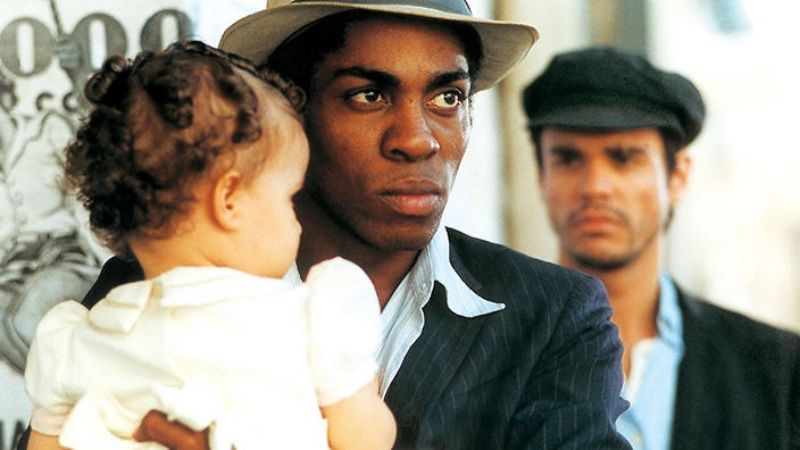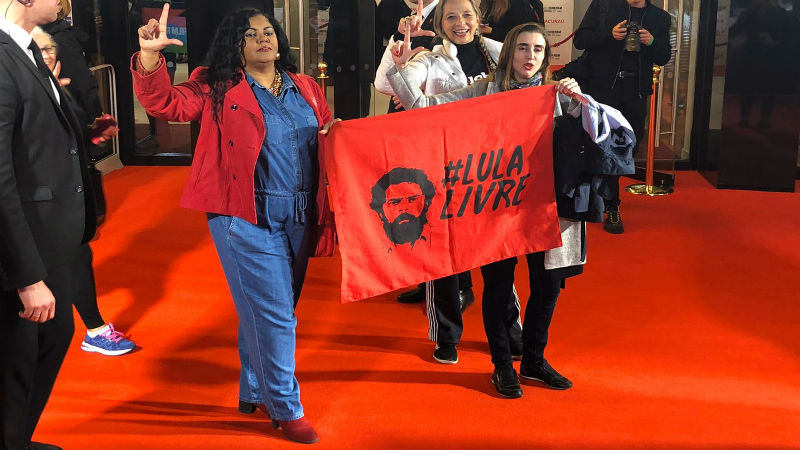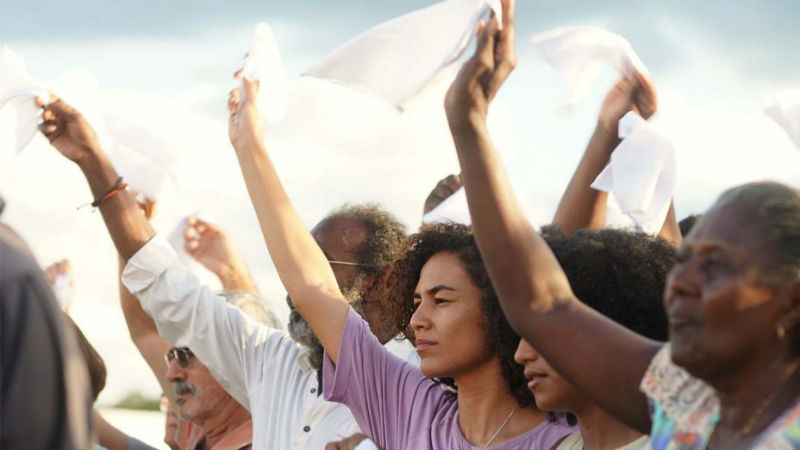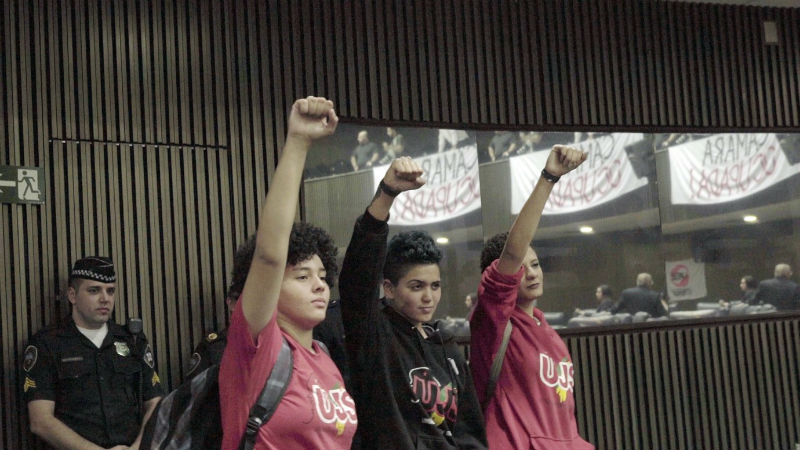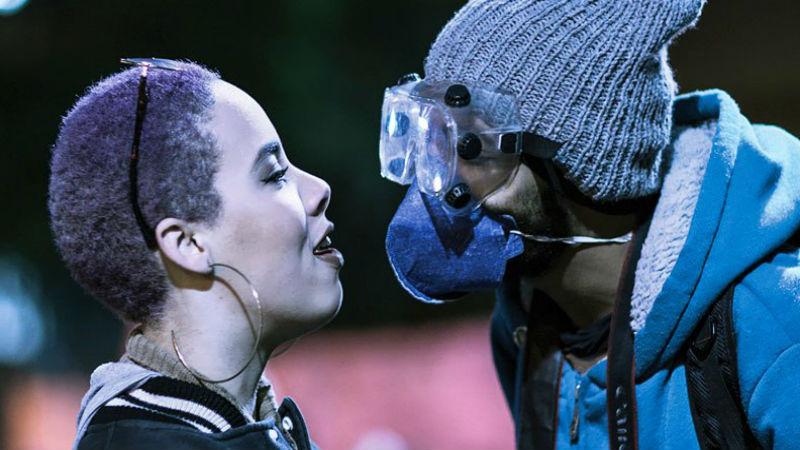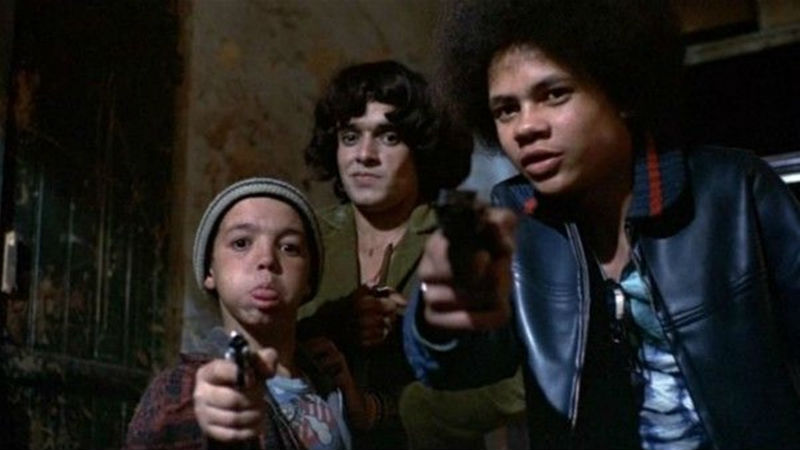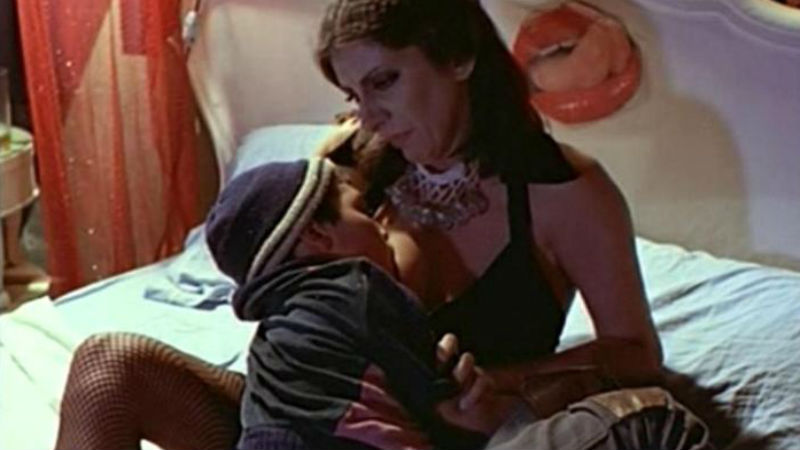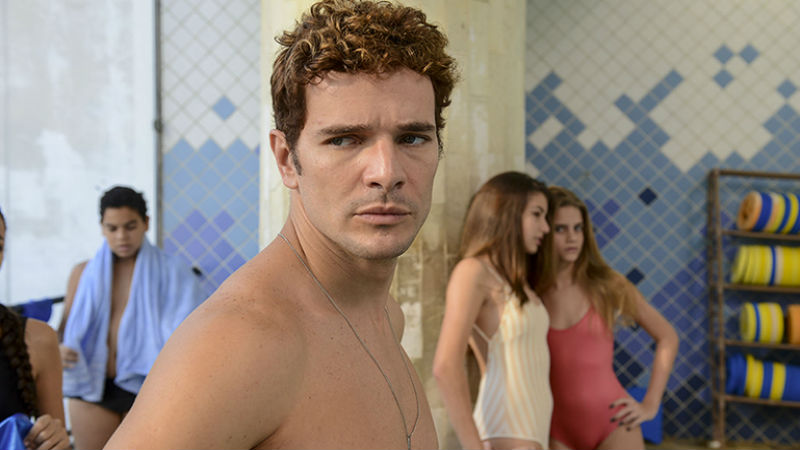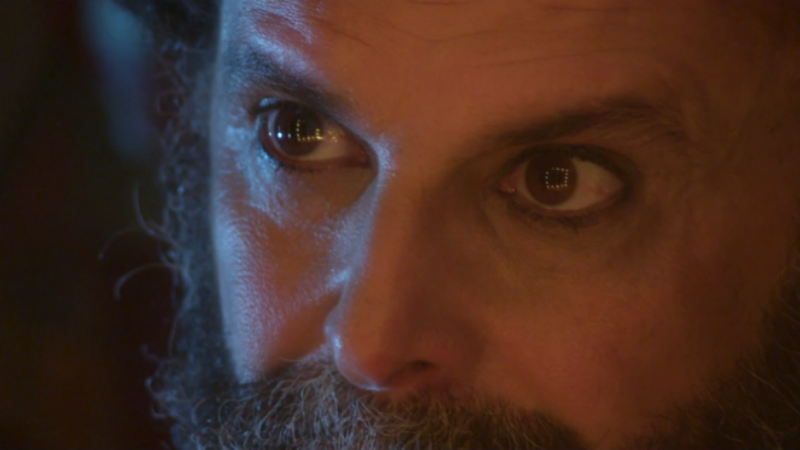Picture: Denny Sachtleben
The year of 2019 has been a very difficult year for Brazilians, with reckless neo-fascist president Jair Bolsonaro coming to power. Brazilian cinema, however, begs to differ. Two Brazilian movies won two brand new prizes in Cannes. Kleber Mendonca Filho and Juliano Dornelles won the Jury Prize Ex-Aequo with the ultra-violent and highly-politicised sci-fi Bacurau, while Karim Ainouz took the Un Certain Regard award for Best Film for the very feminine melodrama The Invisible Life of Euridice Gusmao. That’s the highest accolade bestowed upon movies showing outside competition. Ainouz’s film has also been pre-nominated for an Oscar, and we think that it could become the first Brazilian film ever to snatch the statuette.
The 145-minute epic drama follows two sisters from Rio de Janeiro in the 1950s who are tragically separated throughout the decades thanks to a society that subjugates females in more ways than one. The story investigates the subtle and also the not-so-subtle oppression mechanisms that males use in order to perpetuate their position in society. The story forwards to present days at the end, and there’s a dirtylicious surprise in store for you.
Our editor Victor Fraga (who’s also Brazilian) travelled to Berlin, where Karim has lived for many years. They met in a local cafe and talked about The Invisible Life of Euridice Gusmao, the role of women in the resistance, what it means being a Brazilian immigrant in Europe, the failure of capitalism, religion, Netflix and much more!
The Invisible Life of Euridice Gusmao is in cinemas on Friday, October 2021. This interview was originally conducted in 2019,
…
.
Victor Fraga – Your latest film won a major prize in Cannes, and so did Bacurau. Can you please talk about the significance of such double achievement for Brazilian cinema, particularly at a time when censorship is biting in?
Karim Ainouz – It’s very important in general because it’s the first time we had such a big number of Brazilian films in Cannes, and that we won the Un Certain Regard as well as a major competition prize. It’s important historically but also contextually because it’s a prize for both the movies and the trajectories (Juliano is a bit younger, but Kleber and I are from the same generation). And not a trajectory as directors and auteurs, but a trajectory of policies that made the films possible. It’s a coronation of the films but also of the political work that has been done throughout the years. It’s like winning the World Cup. But you don’t win the World Cup without practising.
VF – Who created these policies?
KA – The film supported was discontinued in the Collor government of the early 1990s. Embrafilme was completely shut down. There was a struggle to bring back public funding. Things began to change with the Audiovisual Law brought in by Fernando Henrique Cardoso. The real beginning of the renaissance of Brazilian cinema was in the nineties and the noughties. What came afterwards were the decentralisation politics, moving away from Rio de Janiero and Sao Paulo towards other regions of Brazil. This started in the first Lula government.
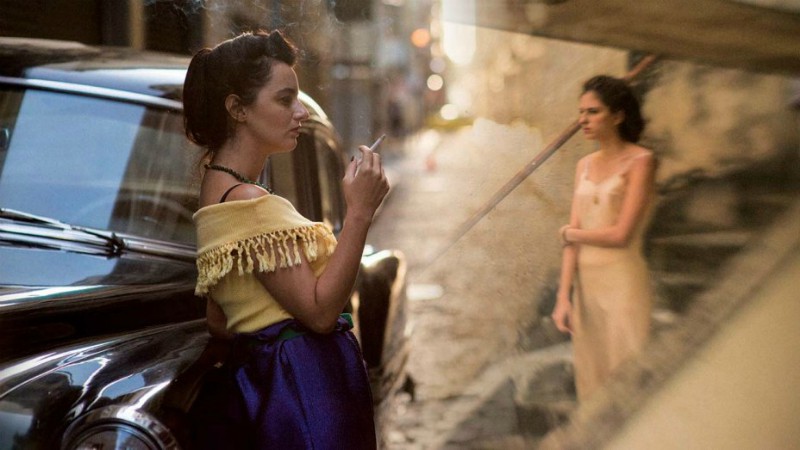
VF – During a speech in Cannes (and I was there) you dedicated The Invisible Life of Euridice Gusmao to Brazilian women. Can you please talk about the role of Brazilian women in the family, in the film and also in the resistence?
KA – My film is a shout against patriarchy. It’s also a continuation of my first short film Seams (1993), a portrait of a my grandmother. My grandmother was a single mother, my mother was also a single mother. I was talking to a friend yesterday about the French Revolution, and the role of women. The moment the women invaded the Paris City Hall was a pivotal one because women could not be shot. There’s no one with more leverage and legitimacy than women to fight against the establishment.
When the film began in 2015, it was the year my mother passed away. She was a scientist, and she raised me on her own. So it was a very personal project. Of course any project has a political agenda, nobody’s a fool. But it was a very personal journey to me. When my mother died I realised how difficult it was being a single mother, supporting a family. This film was about shedding light on women of that generation. The political relevance of the film became much bigger as the years went by. If you think of the crisis we’re going through today, it’s all because of patriarchy. Women have a pivotal role in challenging this.
VF – Your film is set in the 1950s. Do you think that your protagonists Guida and Euridice would be just as oppressed and ostracised had the story taken place at present?
KA – No, I don’t think so. I think it would have been very different. Oppression is still there, but it’s played out in a different way. It depends on class, geography, a lot of things. I don’t think that a middle-class woman nowadays, if she had a boyfriend, left him and came back pregnant, would experience the same cruel behaviour from her father. But I’m not saying women are under less discrimination and pressure than back then. It’s just that the mechanisms are different.
When you look at Brazil, it’s the fourth of or fifth country in the world in terms of violence against women. I think that the toxicity of patriarchy is the same, or perhaps even worse. Men are desperate to cling to power, and this makes things worse. The tactics, the context and class have changed. But also there’s much more resistance, and this resistance is visible.
VF – Do you fear for the future of Brazilian women, given the current situation in the country?
KA – I fear for the future of the world. We are in a place I never thought we would be. I of course fear for the future of my country. We’re undergoing a tragic moment, to put it lightly. It’s pathetic. I fear for the new generation. I think we should fear but we should also have hope for the future. I prefer to think of Brazil as the country that has elected the greatest number of black women in congress and senate. I prefer to think of the Brazil as the country as Linn da Quebrada and Marielle. There’s a lot of fucking resistance! Those are the people who we need to celebrate![Linn da is pictured below, in Kiko Goifman’s documentary Bixa Travesty]
In other words, I fear for the future, but I’m also deeply in love with human beings. We are repeating the same mistakes as 50 years ago, but at the same time I prefer to look at people who are somehow making a difference. It might sound naive, but I do prefer to celebrate the people who have been raised and made conscious of who they are in the past 15 years. We must give credit to the resistance taking place.
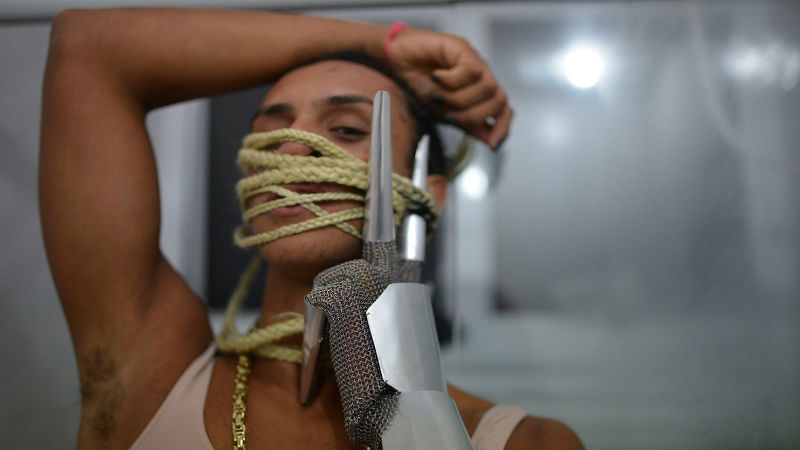
VF – There are two types of female oppression. The father Antonio is the clear-cut type of oppressor, but there’s also Euridice’s husband Antenor, the subtle oppressor, who seems more kind and yet frowns upon his wife having a successful career. How to we extricate ourselves from such pervasive patriarchy?
KA – It’s very difficult no answer. This patriarchy is very deeply ingrained. The first thing is education, as obvious it may sound. But education in the sense of critical thinking. But also when you look at Antonio and Antenor, I don’t think that they are not absolute villains, they are just a byproduct of the time
VA – What about Bolsonaro, is he not a villain. Is he too just a byproduct of the time?
KA – No, Bolsonaro is a real villain! It’s more complicated than that. It’s a question of human ethics.
VA – Do you think that religion plays a role in the oppression of women? In Brazil we have a female minister called Damares, who also happens to be an evangelical priest. She argues that women should stay at home and not play a role in politics at all.
KA – That’s a very good question. There’s an issue with my film. I think that I could have paid closer attention to the role of religion in the life of the family. Religion plays an enormous role in control, in perpetuating power structures. I do have a hard time dealing with religion because I don’t believe in it. So in every film I make I feel that there could be more religion as an antagonist of what’s happening. I also think we shouldn’t just point fingers at the evangelicals, and at the bad qualities of religion. In stead we should be asking ourselves: “why are people turning to religion?”.
The population of Brazil feels completely abandoned, and it’s no coincidence that the evangelical Episcopalians are so successful right now. These are religions that are very much linked to success and achievement. The perfect religion to a moment when a lot of people felt betrayed. They feel liked they were promised something, I was reading an article, like they were going through a revolving door and then get suddenly thrown out. They are angry. Religion helps them to come to terms with that. In late capitalism people feel very alienated.
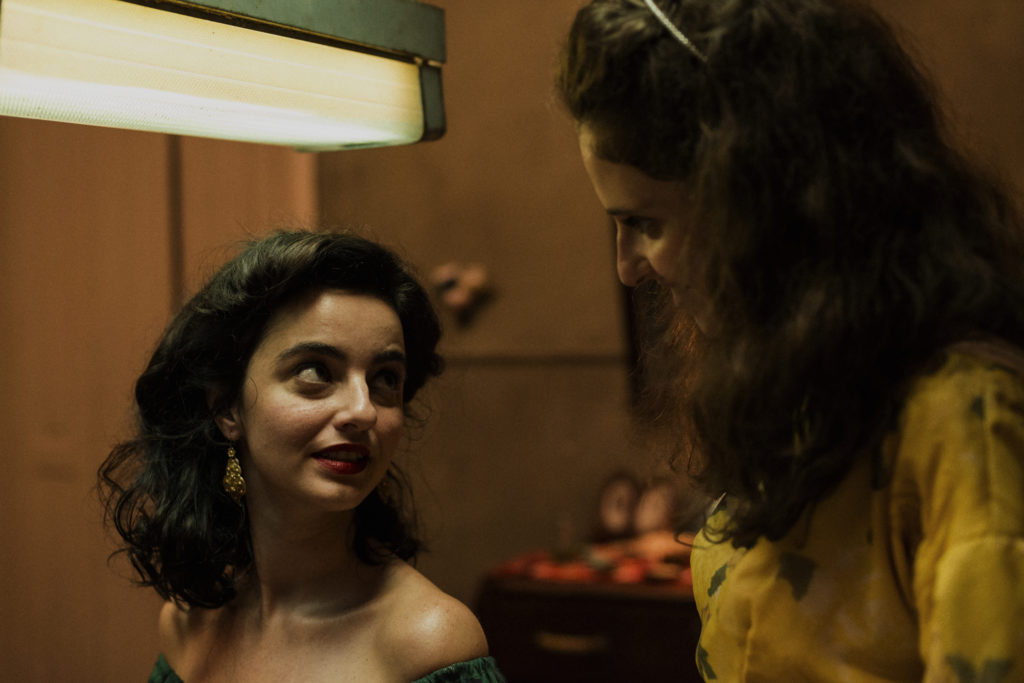
When people talk about global warming, it’s about industrialisation and capitalism. In 1983 there was a talk about the whole planet suddenly freezing. What I’m saying is we need to ask ourselves: “does the world need to be so industrialised? What’s the root of the problem?” Capitalism is always at the root of the problem.
VF – Is it correct to say that capitalism failed Brazil?
KA – It is correct to say that capitalism failed humanity. What’s happening in Brazil is really about that.
VF – Yet communism seems to be the real enemy. Brazilians who voted for Bolsonaro are not scared of capitalism, it’s the old ghosts of communism that they’re afraid of.
KA – I think we need to come up with something new. What’s happening in Brazil is a race for natural resources, that’s what at stake, it’s as simple as that. What’s really despairing (and also inspiring, at the same time) is that we don’t have a new model. What’s the new economic model? That’s very exciting for me, because I came from a place of privilege. But for people in despair this is not exciting.
VF – Immigration is a topic very close to you heart. More specifically, the desire to flee from Brazil to Europe. It’s a central pillar in Futuro Beach (2015, pictured below), and again in The Invisible Life. Can you please talk about your experience as an immigrant, and how that helped to shape your career?
KA – I feel like I was born in a strange place. I was born in Northeastern Brazil from a mother called Iracema and an Algerian father. Imagine the confusion. You feel like your [Arabic] name doesn’t belong to that place. This is something very close to my private life. I was closing up my mother’s house the other day and I found this writing exercise for school from when I was eight. I was already talking about travelling to Argentina, Netherlands, etc.
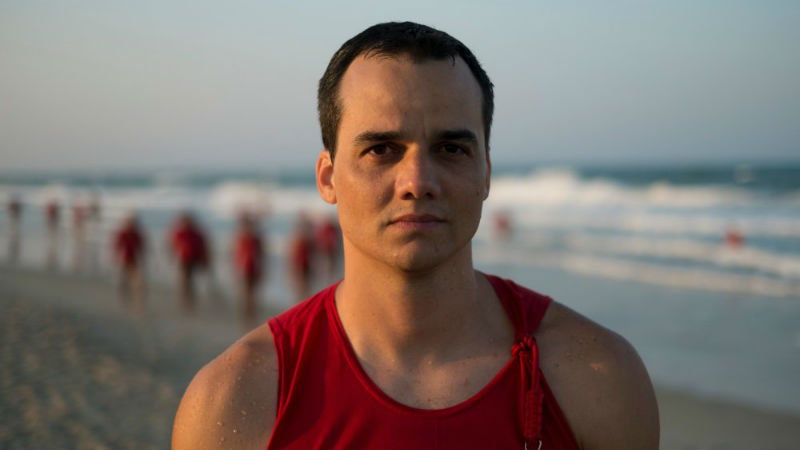
VF – Wanderlust?
KA – Totally. That has marked anything I do in life. This dream of fleeing, going somewhere I don’t know. It was also the dream of meeting my father, who was never there. He was living in France, then Algeria. This was very strong a feeling in my upbringing.
VF – Did you eventually fulfil the dream of meeting your father?
KA – I did! But I also realised that the places were I feel most at home are the places where I feel most foreign. The sense of home to me is connected to being uprooted and then rooted again. That’s something that was not easy for me to come to terms with, but it was also very liberating when finally happened. I get more pleasure from being in Greece than Italy because I have no fucking clue what they’re saying! I don’t understand a word, the alphabet. So there’s a sense of freedom in not belonging, and that’s also in my films.
VF – It’s a pleasure being an alien?
KA – Yes, that’s a huge pleasure! It’s a pleasure not belonging anywhere and at the same time belonging to a lot of places. Anywhere can become home to me.
VF – A few years ago, out then Prime Minister Theresa May shunned the idea that people could have multiple nationalities, and that multiculturalism could work. She infamously said “if you believe you’re a citizen of the world, you’re a citizen of nowhere“. Are you a citizen of nowhere?
KA – Absolutely. I love being a citizen of nowhere!!! I think she’s probably talking about legal rights, while I’m talking about sensations. Not being able to understand what’s happening around me is really inspiring! Not being able to decipher allows you to experience things in a different way.
In Invisible Life, what was very interesting to me was to look at Brazil as a place of immigration [the father Antonio is a Portuguese immigrant in Brazil], and the consequences for the first generation [Antonio’s daughters Euridice and Guida]. These girls needed to succeed, to be the perfect role model. This is much clearer in the book [the eponymous Marta Batalha romance upon which the film is based]. That’s a very important subject to me, but also to the world in general.
Brazil is one of those cultures where people are really happy with what they are. There’s a real love for the land, despite all the shit that’s been going on for 500 years. I wish I could see more stories about Brazil as a place that people go to! Once you get there, the identity from where you came from is erased and you instantly become Brazilian.
On the other hand, the desire to leave has to do with queerness. The queer diaspora. The feeling of going away is something that we as queer people have faced from day one. The smaller the place, the more control they exert over your body and your life. That’s also played a big role in the way I work and in the way I have travelled around the world.

VF – Let’s go back to the topic of resistance. Brazilian television is not doing a sterling job for historically marginalised groups. Black people are constantly criminalised, while LGBT and female representation isn’t very accurate. Will Brazilians have to turn to cinema instead as tool of resistence?
KA – I don’t know! On one hand, I feel like a dinosaur. Does cinema make sense? Does it make sense to make films? Who watches them? But then, that’s all I know how to do. I have to believe it makes a difference, otherwise, how will I wake up in the morning?
It is horrendous how in television – no matter what channel – we Brazilians present ourselves as a white nation. And we are not! That also has to do with who’s owning and running the media in Brazil. And it’s part of an elite who like to think of themselves as white and European. This has nothing to do with what the actual country is.
I don’t know where the frontline is. My frontline is making films. But maybe the frontline is neither in cinema nor television. Maybe the frontline is on the Internet. Maybe it’s on long narratives called series, or something else. When you look at Porta dos Fundos [a Brazilian comedy YouTube channel], it’s brilliant. Maybe that’s the frontline.
VF – Is it on Netflix? Did Petra Costa get it right launching her documentary The Edge of Democracy (2019) there?
KA – No, I don’t think it’s Netflix at all.
VF – But Netflix gave Petra’s film available in more than 200 countries, and people around the world the opportunity to understand the tragedy that’s befallen Brazil.
KA – I didn’t see the film. I think Netflix and Amazon are great, but I also think that we need to be more creative. I’m not entirely sure where the future is, but I’m not convinced it’s not in a big corporation. I hope there are other ways we can communicate with people. We need diversity. We need diverse platforms with diverse outreach that support diverse voices.
…
.
Click here for our previous interview with Karim, back in 2016!
All images in this interview are from ‘The Invisible Life of Euridice Gusmao’, unless stated otherwise.
